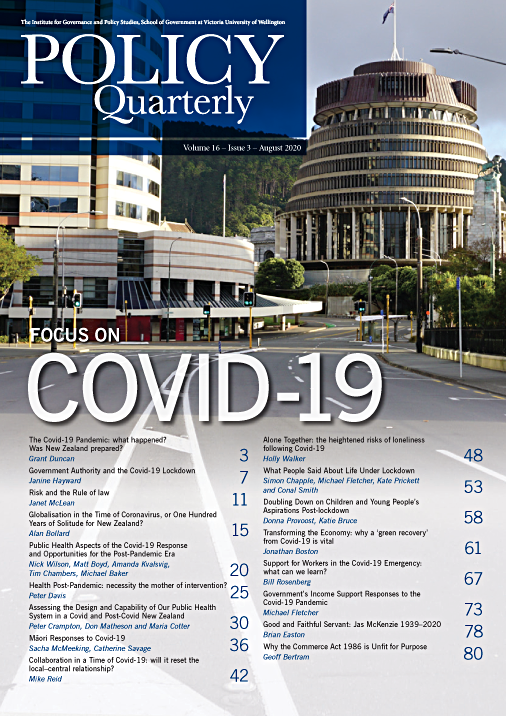Why the Commerce Act 1986 is Unfit for Purpose
DOI:
https://doi.org/10.26686/pq.v16i3.6562Keywords:
regulation, anti-trust, market power, anti-competitive conduct, consumer surplus standardAbstract
New Zealand’s Commerce Act 1986 overturned both common law consumer protections and previous legislation that had spelled out procedures for identifying and sanctioning the abuse of market power. Inspired by Chicago School doctrines and an anti-state philosophy, the legislation opened the way for three decades of monopoly profiteering, exploitation of the weakest consumer groups and anti-competitive conduct, while regulation has been absent or ineffective. In this article, key weaknesses in the 1986 legislation are examined, and some remedies suggested.
Downloads
Downloads
Published
Issue
Section
License
Permission: In the interest of promoting debate and wider dissemination, the IGPS encourages use of all or part of the articles appearing in PQ, where there is no element of commercial gain. Appropriate acknowledgement of both author and source should be made in all cases. Please direct requests for permission to reprint articles from this publication to Policy-Quarterly@vuw.ac.nz.



